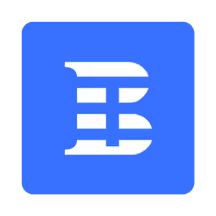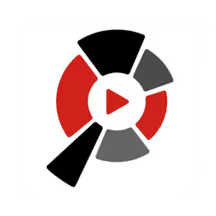%252520(1).avif)
Angular Software Development Company
Leading Angular Development Company for Dynamic Front-End Solutions
Since 2016, Azumo has built a solid reputation as a leading custom Angular development company. Whether you need a full development team or individual Angular experts, we provide the right talent to tackle your challenges and deliver results.
Custom Angular Development
We develop Angular-based solutions, focusing on complex single-page applications, real-time features, and data-rich dashboards. Our approach ensures optimal scalability, fast load times, and seamless user experiences.
Angular Consulting
Our Angular consultants analyze your current architecture and pinpoint areas for improvement, providing actionable recommendations to enhance performance. We guide teams through advanced best practices, optimizing Angular usage for enterprise-grade applications.
Angular Migration
Transition your existing web applications to Angular with minimal disruption. Our team handles everything from architecture updates and data migration to performance enhancements, resulting in a faster, modern, and more responsive application.
Angular UI/UX Design
We craft intuitive user interfaces using Angular’s robust design capabilities, ensuring interactive components and fluid navigation. Our designs prioritize responsiveness, accessibility, and branding consistency to engage users effectively.
Angular Maintenance and Support
Our ongoing support covers performance optimization, security updates, and bug fixes to keep your Angular applications performing at their best. We proactively identify and resolve issues, minimizing downtime and maintaining peak performance.
Angular API Development and Integration
Our team creates and integrates custom APIs to enhance data flow between Angular apps and other systems, facilitating real-time updates, third-party service connections, and advanced data operations for a seamless digital experience.
Case Study
Success in Action: Angular Development Case Study
Tools
Tools We Leverage in Angular Development
Our Angular development services are backed by extensive experience, covering every aspect of the Angular ecosystem to support your projects. Our talented nearshore Angular developers bring the skills and innovation needed to meet your goals.
Angular Development: Tools, frameworks, and libraries that we use when building with Angular
Expertise
Web Applications
Our Angular development team uses Angular’s robust framework to build dynamic, responsive web applications. We focus on creating solutions that are scalable, maintainable, and optimized for interactive user experiences.
Single Page Applications (SPAs)
Leveraging Angular, we create fast and efficient SPAs that provide seamless user experiences with minimal page reloads and dynamic content updates.
Enterprise Web Applications
Our Angular development company specializes in developing large-scale, enterprise-level web applications. These solutions offer high performance, enhanced security, and seamless integration with complex systems and databases.
Progressive Web Applications (PWAs)
By utilizing Angular’s PWA capabilities, we develop applications that deliver a native-like experience and function reliably, even in offline conditions.
Dashboard and Data Visualization Applications
Our Angular development services include creating custom dashboards and data visualization tools, enabling clients to present complex data in an intuitive and interactive format using libraries like D3.js or Angular Material.
Content Management Systems (CMS)
We build versatile and user-friendly CMS platforms using Angular, allowing clients to manage and publish content effortlessly. Our solutions feature custom workflows and functionalities tailored to specific needs.
Trusted Partner
A Proven Partner for Software Development
We deliver highly skilled software engineers, data science professionals, and cloud specialists who consistently solve problems, complete tasks and work to power your projects forward. By quickly accessing these skilled developers, we help accelerate your time to market and ensure successful project outcomes.
4.9
93%
150%
Award winning development

Top AI Development Company
Top Software Developers
Top Staff Augmentation Company
Top AI Development Company
Top Machine Learning Company
Top Staff Augmentation Company
Top AI Development Company
Top Software Developers
Top Software Development Company

Top Software Development Company

Impact Company of the Year

Best in the West

Hot Vendor for AI
Our Work
A Few of Our Clients
A selection of our custom software development services customers.
Models
We build dedicated outsourced development teams.
We scale your team with the essential personnel your development team needs.
We deploy into your project where you need us and manage the delivery and development of your solution.
We advise and architect scaleable and secure technology solutions for AI, Data, and Web.
Benefits
Benefits of Software Staff Augmentation from Azumo
Customer Success Focused
An Azumo Customer Success Manager and Technical Lead will work together with you and your product owner to ensure we match the right Azumo developer with your project.
Hand Picked Developers
When we place one of our developers with you, he/she is handpicked for their domain knowledge on the modern technologies your software application needs. This helps you concentrate on your core business tasks.
Experienced and Well Trained
Our software engineers are well-trained and experienced. We have a knack for easily dropping into new projects and seamlessly working with your team to to attack the backlog and adapt.
We Deliver Expertise
Our software staffing services give you the highest service quality, enabling you to meet deadlines and grow efficiently. We offer a complete nearshore staff augmentation service.
More Efficiency
You'll enjoy working with our skilled engineers, who make it easier for you to launch new features faster and maintain existing systems more affordably.
Scale Up or Down
We provide flexibility so you can grow or shrink as needed. You can test new ideas or boost your development velocity, helping you reduce the pressure on your current team.
Process Built for success
How We Deliver Every Sprint
Our developers are not freelancers and we are not a marketplace. We take pride in our work and seat dedicated Azumo engineers with you who take ownership of the project and create valuable solutions for you. And this is how:
First Touch Deep Dive
A Pre-Kickoff Technical and Strategic Review
We have a dedicated project management team with years of industry experience.
We provide personalized solutions that cater to the specific needs of each client.
We ensure clear communication channels to keep all stakeholders informed and engaged.
We maintain stringent quality assurance processes to mitigate risks effectively.
A Complete Team
We Deliver More Than a Developer
We have a dedicated project management team with years of industry experience.
We provide personalized solutions that cater to the specific needs of each client.
We ensure clear communication channels to keep all stakeholders informed and engaged.
We maintain stringent quality assurance processes to mitigate risks effectively.
Proactive Management
Daily Stand-ups & Weekly Reviews
We have a dedicated project management team with years of industry experience.
We provide personalized solutions that cater to the specific needs of each client.
We ensure clear communication channels to keep all stakeholders informed and engaged.
We maintain stringent quality assurance processes to mitigate risks effectively.
Built-in Redundancy
Our 'Bench Strength' Protocol
We have a dedicated project management team with years of industry experience.
We provide personalized solutions that cater to the specific needs of each client.
We ensure clear communication channels to keep all stakeholders informed and engaged.
We maintain stringent quality assurance processes to mitigate risks effectively.
process
The Benefits of Building with Angular Development
Angular is a popular, powerful, and versatile web application framework developed by Google, recognized for its declarative approach and component-based architecture. By choosing Angular development services, you gain access to an extensive ecosystem, strong coding conventions, and seamless integration capabilities with other web technologies, making it ideal for creating feature-rich, responsive web applications.
Our expert team at Azumo is committed to delivering tailor-made Angular solutions that meet your unique project requirements. Partner with us to harness the full potential of Angular development and bring outstanding web applications to life.
Component-Based Architecture
Angular's component-based architecture fosters code reusability, modularity, and maintainability, enhancing the efficiency of Angular development projects.
Seamless Integration
Angular development offers seamless integration with other web technologies, including TypeScript and RxJS, enabling powerful and flexible application development.
Extensive Ecosystem
Take advantage of Angular's comprehensive ecosystem, featuring a wealth of libraries, tools, and resources designed to accelerate development.
Google Backing and Active Community
With strong backing from Google and a vibrant, active community, Angular development benefits from ongoing support, updates, and a wealth of shared knowledge and resources.
How Our Angular Development Services Transform Your Ideas into Software
As a leading Angular development company, we have a well-defined process for creating high-performing web, mobile, and desktop applications. Our approach covers every stage, from planning and design to development and deployment, ensuring that your Angular project is delivered on time and meets your requirements.
Discover
Requirement Analysis
Our Angular experts analyze your project objectives, requirements, and goals to create a clear roadmap for Angular software and application development. We work closely with you to fully understand the scope of your project and define the steps needed for successful delivery.
Build
Design and Development
Using the latest Angular technologies, we design user-friendly interfaces and build the functionality your application needs. Our Angular developers create high-quality, scalable code that ensures your project’s success.
Test
Testing & QA for Angular
Our Angular development company tests every aspect of your software. Our dedicated QA team ensures that your application runs smoothly and meets all performance and security standards.
Maintain
Delivery & Support
Our Angular development team ensures a smooth and timely delivery of your software. We provide ongoing support and maintenance to keep your software running optimally.


.avif)
.avif)






.avif)
.avif)

